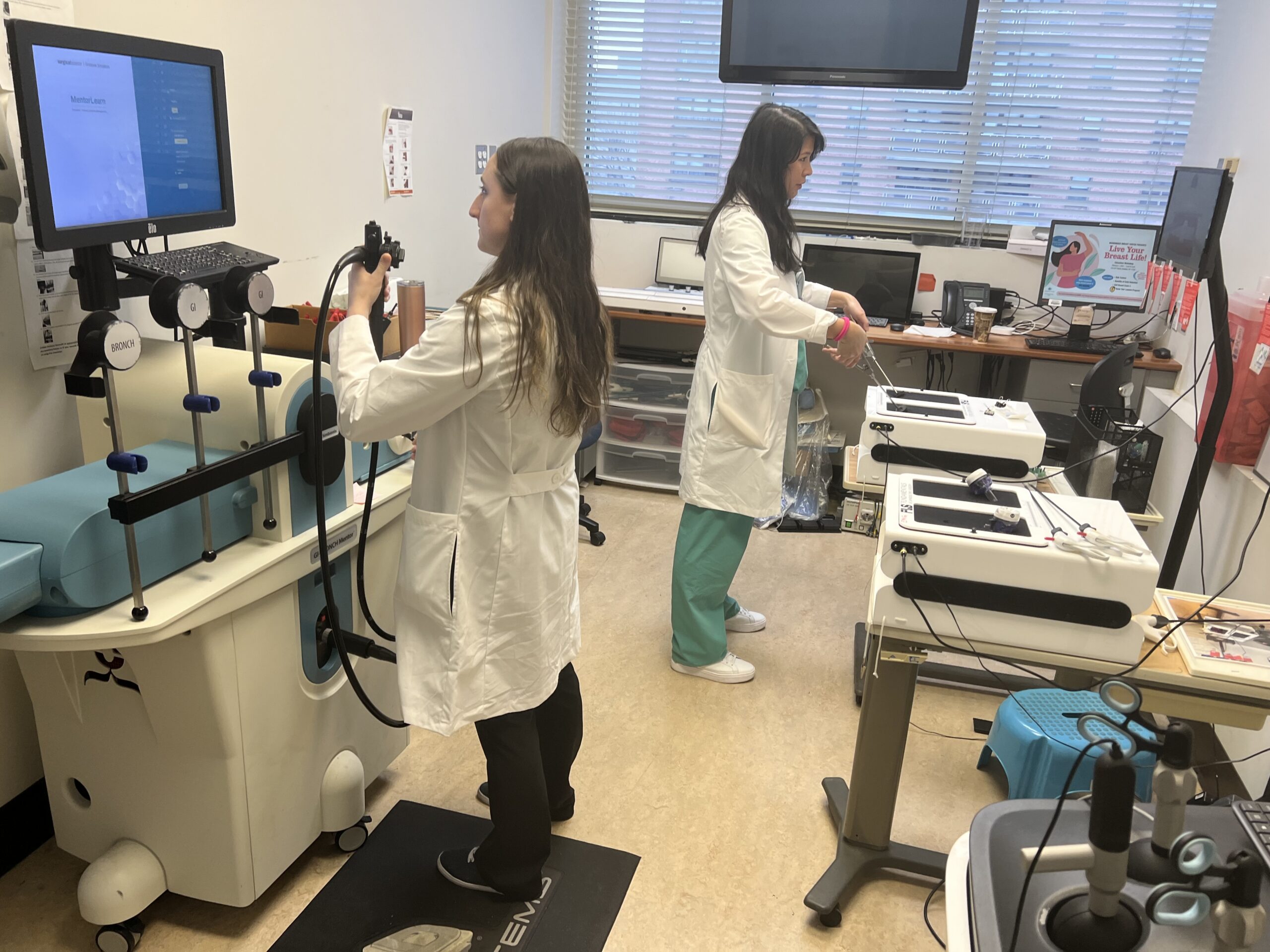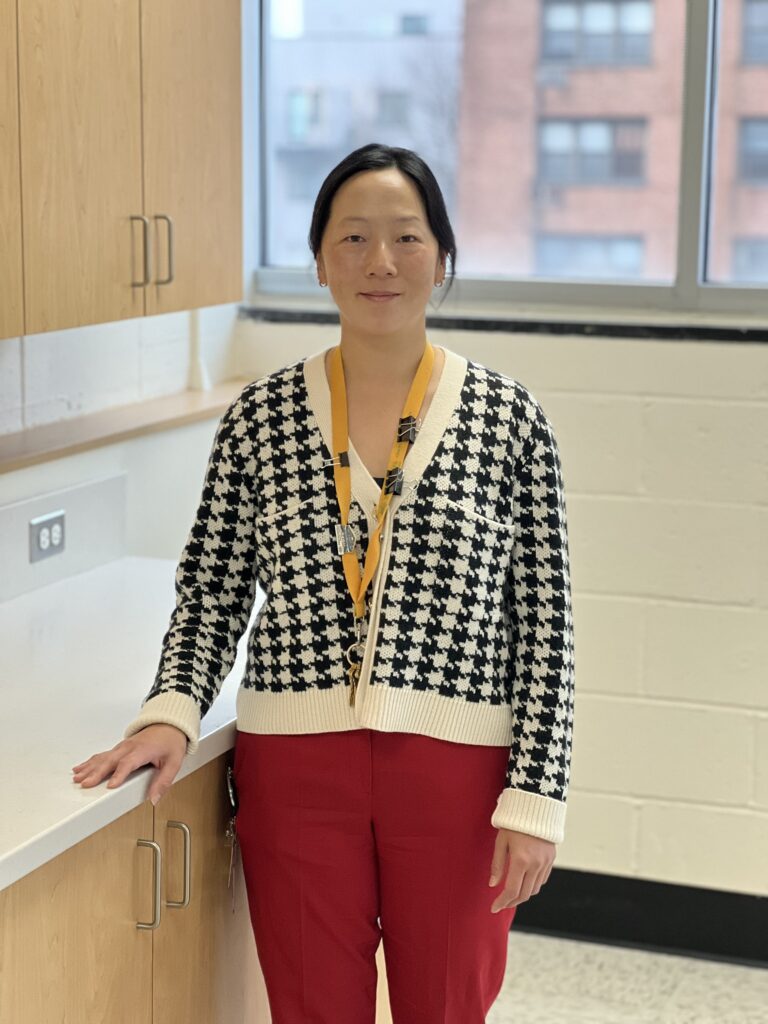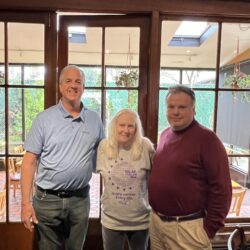
Premium Content
Maimonides Medical Center makes a mark, breaking a glass ceiling with first all-female surgical resident class
Key factor overriding any gender issues: Teamwork

Two surgical residents practicing their laparoscopic/endoscopic skills in the task training room. Brooklyn Eagle photos by Wayne Daren Schneiderman




